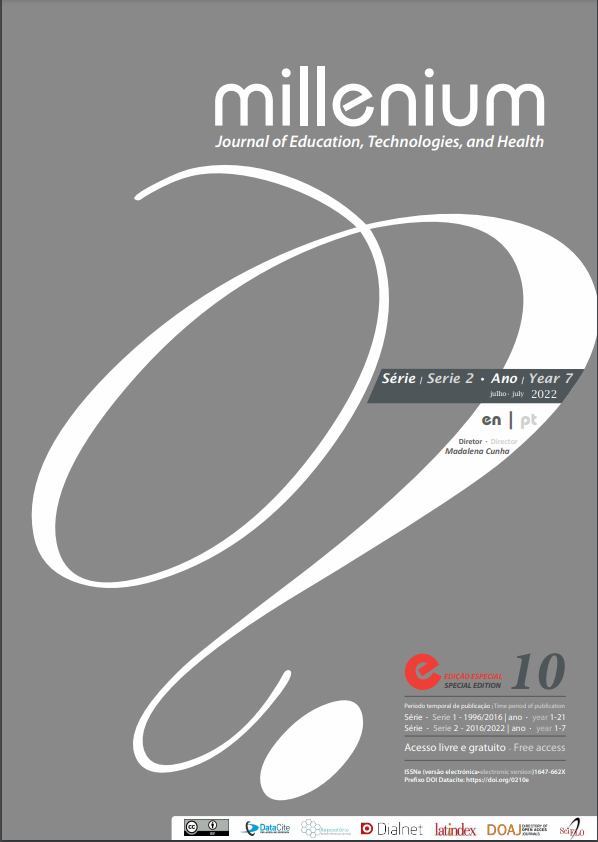Maximization and optimization in sports organizations
DOI:
https://doi.org/10.29352/mill0210e.26185Keywords:
institutional analysis, municipality, sport, mesoscope, sports organizationAbstract
Introduction: The importance of the study of organizations as social entities of human development and as fundamental agents of change and evolution, that is, as true institutions, leads to the need for their research in the context of Sport.
Objetive: This study aims to analyze the appreciation that sports organizations attribute to the principles of Maximization and Optimization.
Methods: Azevedo's institutional analysis questionnaire (2014) was used to assess the degree of agreement of sports communities, and organizations were later characterized in typological quadrants according to Figueiredo's mesoscopic analysis model (2006).
The study included 154 respondents, belonging to and distributed by the 24 local sports organizations of Viseu’s district and with different positions in their hierarchical structures.
Results: The results reveal significant differences in the valuation attributed to both the Maximize pole and the Optimization pole, as well as the integration of organizations into typologies from 1st to 4th quadrants, according to their preferences.
Conclusion: The intentions of sports communities aim to regulate and provide stability to organizational social and sports behavior, so as to be accepted and recognized by their peers.
Downloads
References
Azevedo, A. M. T. (2014). Análise institucional das organizações desportivas - a intencionalidade desportiva das autarquias do distrito de Viseu [Tese de Doutoramento não publicada]. Universidade de Trás-os-Montes e Alto Douro.
BARREIROS J. Metodologia da investigação científi ca. Lisboa: Faculdade de Motricidade Humana da Universidade Técnica de Lisboa, 2008.
Bento, J. (1991). Desporto, saúde e vida: em defesa do desporto. Lisboa: Horizonte.
Bento, J. (2012). Pelo regresso do desporto: ensaio epistemológico. In J. O. Bento & W. W. Moreira (Eds.), Homo sportivus - o humano no homem (pp. 14-111). Instituto Casa da Educação Física.
Figueiredo, A. (2006a). A comunidade desportiva intencional como objecto de investigação e desenvolvimento na gestão do desporto. Revista Portuguesa de Gestão do Desporto, 3(2), 24-41.
Figueiredo, A. F. (2006b). A institucionalização do karaté - os modelos organizacionais do karaté em Portugal. [Tese de Doutoramento não publicada]. Faculdade de Motricidade Humana da Universidade Técnica de Lisboa.
Garcia, R. (2004). Antropologia do desporto: o reencontro com Hermes. Povos e Culturas. Faculdade de Desporto, Universidade do Porto.
Marôco, J. (2021). Análise estatística com o SPSS Statistics (8.ª ed.). Pero Pinheiro: ReportNumber.
Pires, G. (1988). Para um projecto multidimensional do conceito de desporto. Revista Horizonte, 5(27), 101-104.
Pires, G. (2005). Gestão do desporto – Desenvolvimento organizacional. Da educação desportiva à alta competição. Porto: APOGESD.
Pires, G. (2007). Agôn gestão do desporto - O jogo de Zeus. Porto: Porto Editora.
Sousa, G. (2006). Desporto e mudança institucional. Revista Portuguesa de Gestão do Desporto, 3(2), 2-3.
Downloads
Published
How to Cite
Issue
Section
License
Copyright (c) 2022 Millenium - Journal of Education, Technologies, and Health

This work is licensed under a Creative Commons Attribution 4.0 International License.
Authors who submit proposals for this journal agree to the following terms:
a) Articles are published under the Licença Creative Commons (CC BY 4.0), in full open-access, without any cost or fees of any kind to the author or the reader;
b) The authors retain copyright and grant the journal right of first publication, allowing the free sharing of work, provided it is correctly attributed the authorship and initial publication in this journal;
c) The authors are permitted to take on additional contracts separately for non-exclusive distribution of the version of the work published in this journal (eg, post it to an institutional repository or as a book), with an acknowledgment of its initial publication in this journal;
d) Authors are permitted and encouraged to publish and distribute their work online (eg, in institutional repositories or on their website) as it can lead to productive exchanges, as well as increase the impact and citation of published work
Documents required for submission
Article template (Editable format)





